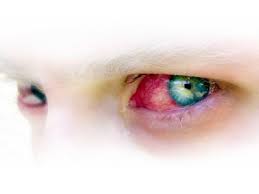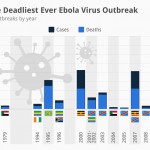Conjunctivitis is also referred to as the pinkeye condition, which is the inflammation of a person’s conjunctiva. Now, many people might be pondering as what exactly is conjunctiva? It is a thin and clear tissue present above the white part of our eyes and surrounds the inside of our eyelids.
 Now that you are aware of what conjunctivitis, let us move onto the factors that trigger this eye condition.
Now that you are aware of what conjunctivitis, let us move onto the factors that trigger this eye condition.
Causes
Various factors cause conjunctivitis, including:
- Allergy to pollen, dust or some specific type of allergy, which affects people wearing contact lenses
- Irritants including pool chlorine, smoke, dirt and shampoos
- Bacteria such as chlamydia or gonorrhea
- Certain viruses
Conjunctivitis caused due to some viruses or bacteria can easily spread from one individual to other, but does not pose any serious health threat if diagnosed and treated at the earliest. On the other hand, conjunctivitis in infants or newborn babies ought to be reported to a physician immediately.
Symptoms
Symptoms of conjunctivitis vary based on the severity of inflammation, but might entail:
- Redness in the white area of eyes or inner eyelids
- Increased production of tears
- Blurred vision
- Burning sensation in the eyes
- Increased sensitivity towards light
- Itching sensation in eyes
- White or green color discharge from eyes
- A thick yellow colored discharge layering the eyelashes, particularly after sleep
Visit your doctor if you encounter any of these signs. The doctor will conduct a test of eyes and might use cotton wipe for taking the sample of fluid from your eyes for analysis. This way, the doctor can diagnose as well as treat conjunctivitis.
Treatment
The treatment depends and varies on the cause.
- Bacteria: Conjunctivitis caused due to bacteria including the ones related to sexually transmitted diseases can be treated with the help of pills, ointments, or antibiotics available in the form of eye-drops. One might need to apply ointments or eye drops a couple or more times in a day for a week, whereas pills ought to be taken for a few days. Always, use the medications as suggested by the doctor.
- Allergies: Conjunctivitis occurring due to allergies must improve once you treat the allergy. Consult your doctor in case your pinkeye condition resulted due to some allergy or allergen
- Irritants: Pinkeye resulting due to irritants can be treated using water. You need to wash your eyes with water. You might see improvements within 4-5 hours. In case, it is caused due to alkaline or acid material like bleach, then ought to instantly rinse your eyes with water and consult a doctor immediately.
- Viruses: This form of conjunctivitis often occurs from viruses that trigger common cold and it lasts for around a week or so. Note that viral pinkeye condition can be extremely contagious and thus, you ought to be extra cautious. Avoid coming in contact with other folks and wash off your hands as frequently as possible.
How Do I Alleviate The Symptoms Of Conjunctivitis?
Here are few tricks to help alleviate the symptoms of conjunctivitis:
- Avoid makeup
- Safeguard your eyes from irritants and dirt
- Remove those contact lens, if you are wearing any
- Get artificial tears, a kind of eye-drops that will help to alleviate the burning and itching sensation. Nevertheless, a few eye-drops might cause irritation to your eyes, especially the ones marketed for treating red eyes.
How Do I Prevent Conjunctivitis?
- Avoid rubbing or touching the infected eye.
- Wash off your hands frequently with warm and soap water.
- Wash off any kind of discharge coming out of the eyes with a soft cotton wipe. Discard the wipes immediately and wash off your hands with warm and soft water.
- Wash off your pillows, bedspreads and bed linens with detergent and hot water on a regular basis.
- Stay away from using eye makeups.
- Avoid wearing contact lenses of other people.
- Consider wearing eyeglasses or spectacles instead of lenses. Discard disposable lenses without fail. If you are using non-disposable lenses, then make sure to clean them frequently.
- Avoid sharing eyeglasses and towels of other folks.
- Never use the drops prescribed for your infected eye in the other (non-infected) eye.
- Always wash and clean your hands after applying the drops.
- If your kid is suffering from viral or bacterial conjunctivitis, avoid sending him/her to school until the condition alleviates and your kid is no longer contagious. It is safe to resume the school after the symptoms suppress, but it is equally vital to continue following good hygiene measures.
Complications
Conjunctivitis is a kind of self-confined condition, which either fades on its own or after the use of some meds. Nevertheless, a few types of pinkeye might be threatening and severe requiring immediate medical attention and these include conjunctivitis resulting due to chlamydia, gonorrhea or certain breeds of adeno virus.
Avoiding Conjunctivitis
Of all the types, viral conjunctivitis is the most contagious. However, it is advisable to maintain good hygiene to avoid it. In addition, avoid touching the face, because the virus might enter your mouth or nose.
Talking about allergic pinkeye, you must avoid contact with allergens and take good care of your lenses to cut down the risks.
Eye drops are the most commonly prescribed treatment for getting rid of conjunctivitis.


 Cart : 0 items - $0.00
Cart : 0 items - $0.00










